En español, en català, en français
Google Awords has always enjoyed maximum visibility at the top left side of search engine result pages. This, however, may change from now on, at least for hotel searches, because Google is trying out putting Google Hotel Ads (GHA) above AdWords, a substantial change for users, advertisers and Google itself.
It seems that, at least for now, the change mainly affects desktop users because Google Hotel Ads already enjoyed maximum visibility on searches made on mobile devices despite still being underneath AdWords.
NOW
SO FAR
Will your intermediation costs go up? Will they go down? How will it impact AdWords consumption? Will there be cannibalisation or will it be complementary?
The more visibility Google Hotel Ads has, the less AdWords will have. We expect that there will be a shift in users and, therefore, in clicks and bookings in favour of GHA. Whether that is 10%, 20% or 50%, only time will tell. It is still too early to say.
In any case, three scenarios have opened up:
- If you are NOT on Google Hotel Ads but are on AdWords, this change is a yellow flag. Your AdWords will have less visibility and you will have all OTAs bidding on your hotel, which will probably redirect your views and sales which previously ended up on your website. Therefore, your total distribution costs will increase. Here is an example of this:
- If you do NOT participate in AdWords but do in Google Hotel Ads, the exact opposite will happen. Your entry in Hotel Ads will allow you to gain visibility you did not have with AdWords. This is important because, many times, even if you invest in AdWords, you will have country or budget limitations. With Google Hotel Ads, in particular with the commission mode, the normal situation is to have campaigns open on all markets with no time limit. In these cases, the change will benefit you since you will gain visibility at the expense of OTA AdWords. If you can monetise these investments at a lower cost than OTAs, your distribution costs will go down. Here is an example:
- If you invest in AdWords AND in Google Hotel Ads, this is the most difficult case to grasp:
- In terms of views and sales on your website, the change should not affect you too much since what you will lose on AdWords you will gain in Hotel Ads. If you do, it should be positive and once again we point out that Hotel Ads allows the commission mode, therefore hotels do not usually put budget limits and have active campaigns all the time, whilst this is not always the case on AdWords, which is instead limited to specific markets.
- However, you have to watch out on how this affects the total return on investment. If the AdWords investment was more profitable than Hotel Ads, it is probable that your profits will go down. If Hotel Ads gave you better numbers, your profits will increase.
Conclusion
Google Hotel Ads is enjoying an undeniable upward trend, parallel to its continuous adjustments and improvements, such as the recent addition of the occupancy filter. With the new rearrangement, Google has once again made a move, on this occasion surprising everyone with a significant change in the results page, a page which is the main source of income for them which had not undergone changes of this kind in many years.
For Google, integrating AdWords and Hotel Ads seems like a natural step to take, since they are the same advertisers with the same product and the same target clients. It seems that this move brings this possibility, which Google has been talking about for so long, a little closer. Yesterday Google announced that Hotel Ads joins Ads.
Large OTAs are usually very quick to adapt to changes for their own benefit. In terms of direct-sales marketing on metasearch engines, that is your decision.
To know more about how to boost your direct channel on metasearch engines, please click here or contact us at metasales@mirai.com



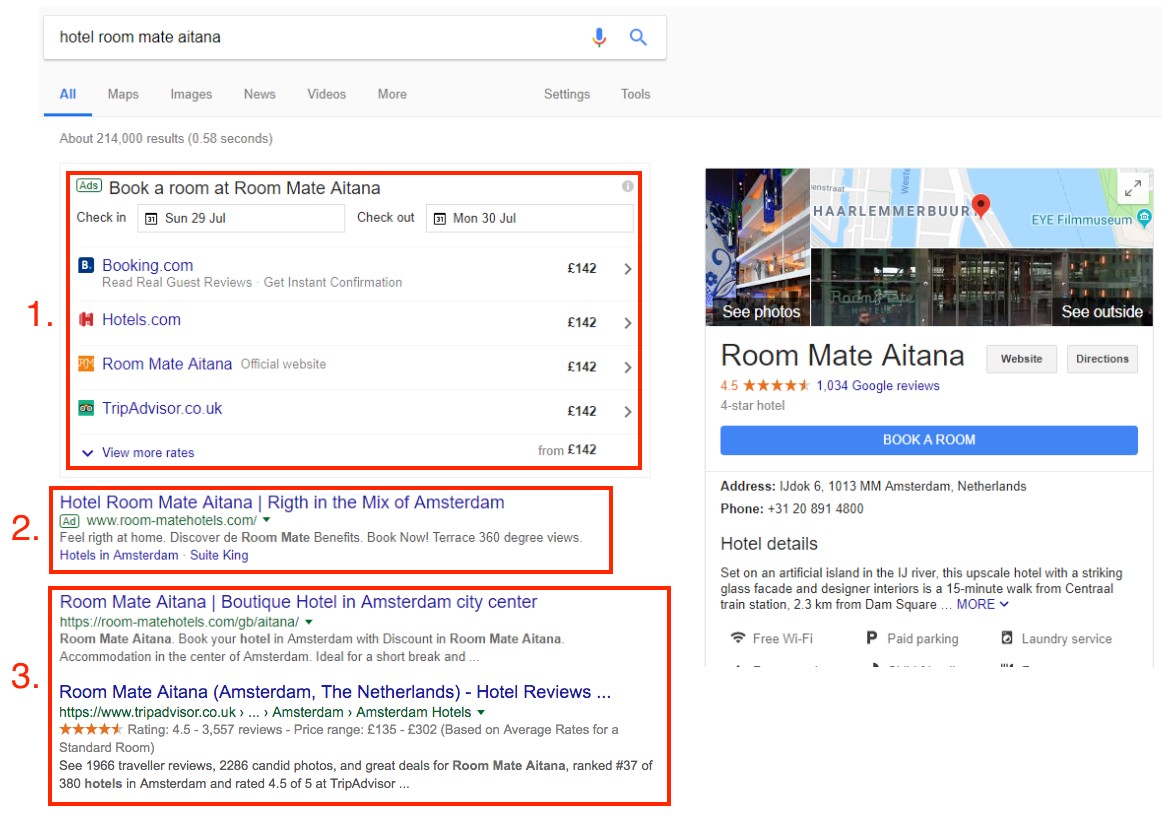
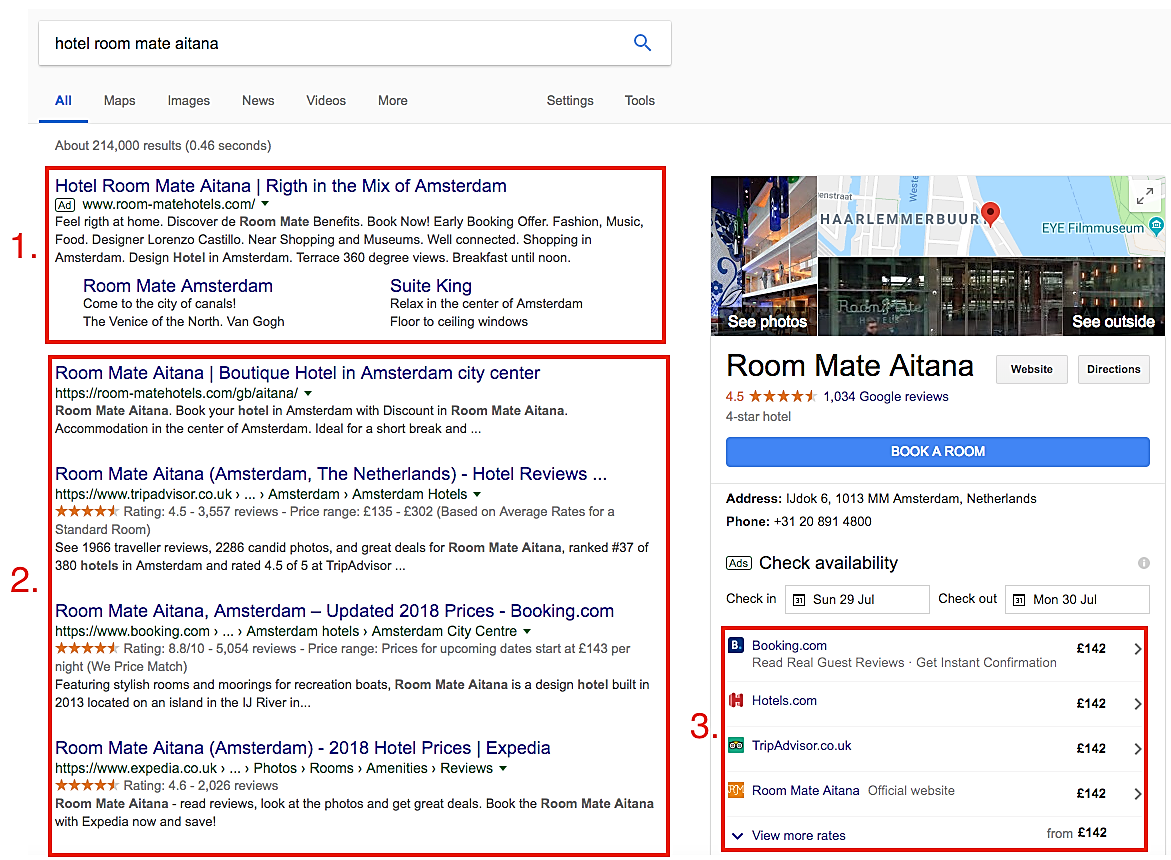
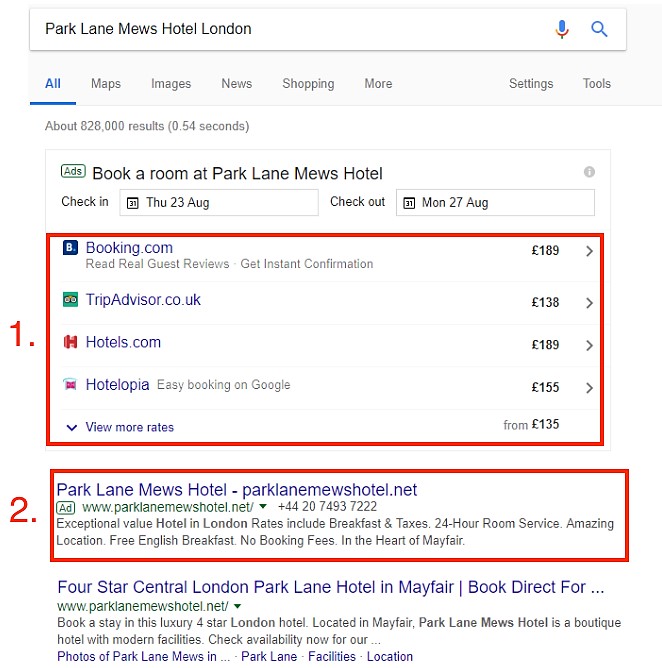
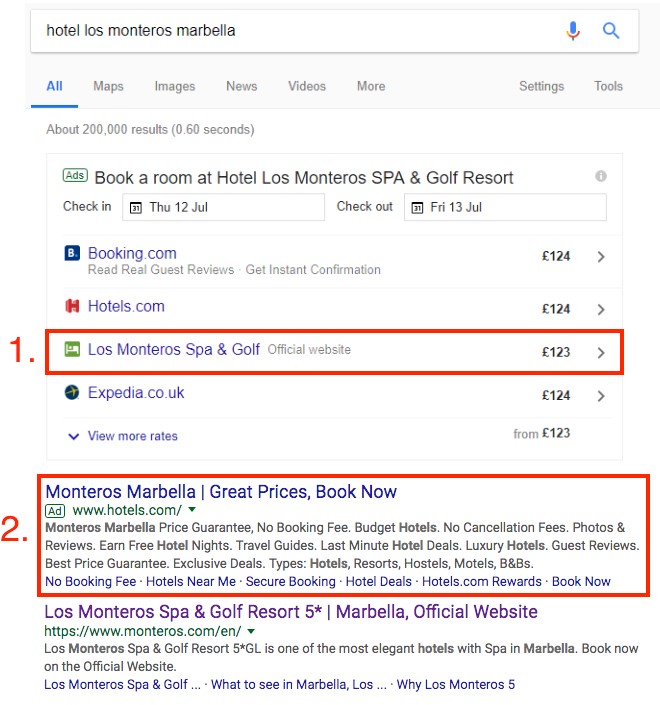
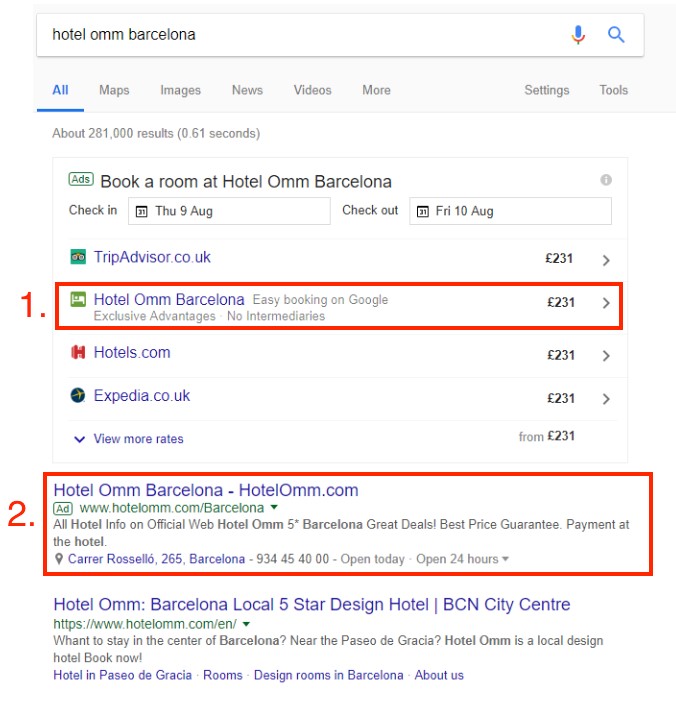

This is great news for hotels and other direct suppliers, so am guessing google will make a strategy for OTAs too…soon as OTAs themself are the biggest customer for Google
Still curious too know who is benefiting from this …Google or hoteliers or this change is for the benefit of end traveller
Price competitiveness will decide whether it will be ROI driven for hotels or a loss making preposition, but in any scenario gives more teeths to hotel to increase their direct share.